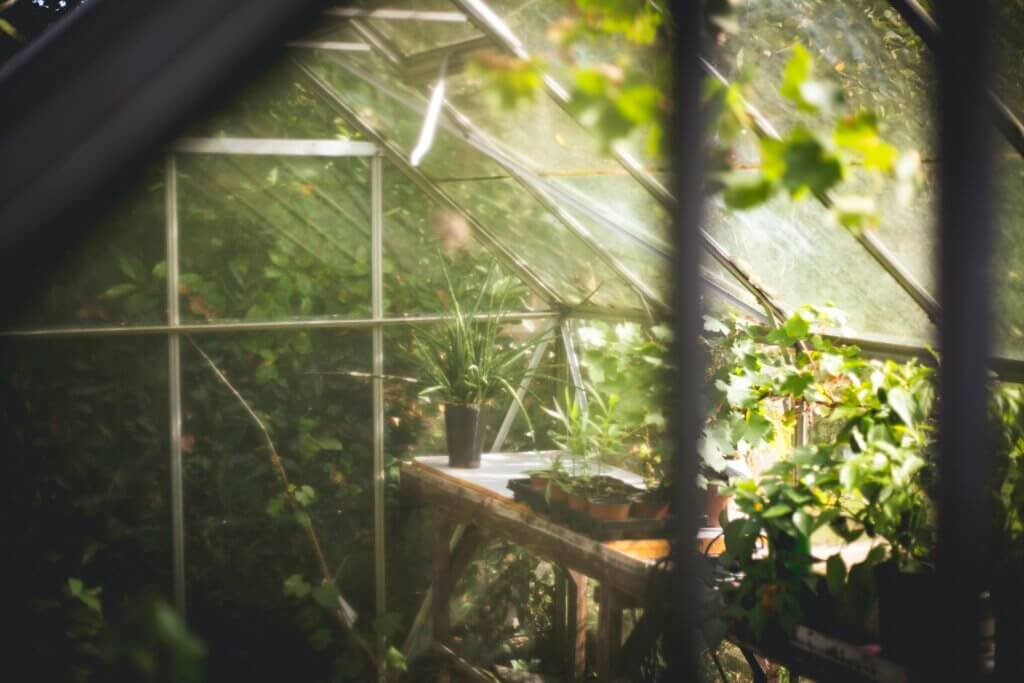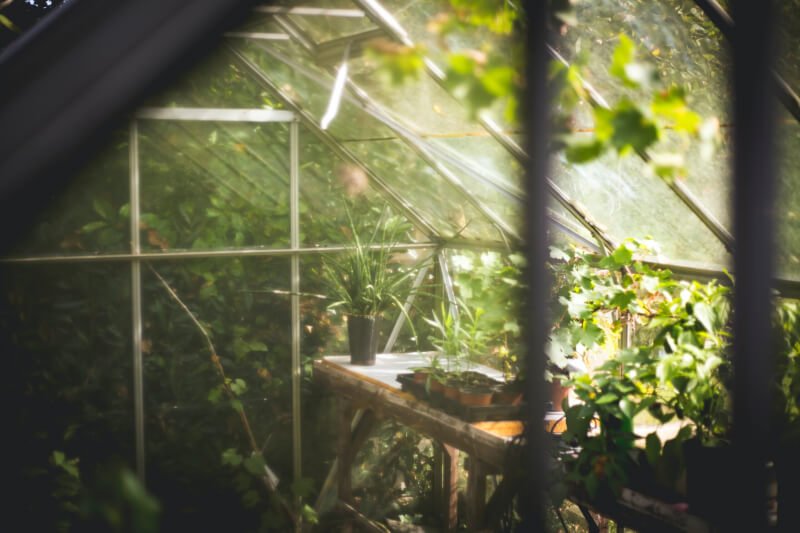If you’re looking to cultivate a thriving garden, attracting beneficial insects is key. These tiny creatures play a vital role in pollination and pest control, helping to maintain a healthy ecosystem in your garden. Luckily, there are several simple and effective ways to entice them to make their home among your plants. From providing a diverse range of flowering plants to offering shelter and water sources, discover the best ways to transform your garden into a haven for these helpful insects.

Plant diverse flowers and herbs
Choose native plants
When it comes to attracting beneficial insects to your garden, choosing native plants is a great way to go. Native plants are adapted to the local climate and provide a familiar habitat for native insects. By planting native plants, you can create a welcoming environment for beneficial insects to thrive.
Include plants with different bloom periods
To ensure a steady supply of nectar and pollen for beneficial insects throughout the year, it is important to include plants with different bloom periods in your garden. By selecting plants that bloom at different times, you can provide a continuous food source for beneficial insects, attracting them to your garden and encouraging them to stay.
Plant a variety of flowers and herbs
To maximize the diversity of beneficial insects in your garden, it is important to plant a variety of flowers and herbs. Different insects are attracted to different types of flowers, so by offering a range of options, you can attract a wide range of beneficial insects. This diversity will help to maintain a balanced ecosystem in your garden and control pest populations naturally.
Provide a water source
Install a bird bath
A bird bath is not only a beautiful addition to your garden but also a valuable water source for beneficial insects. Many beneficial insects, such as bees and butterflies, rely on shallow water sources for hydration. By installing a bird bath and keeping it filled with fresh water, you can provide a reliable water source for these insects, encouraging their presence in your garden.
Place containers with shallow water
In addition to a bird bath, placing containers with shallow water throughout your garden can provide alternative watering spots for beneficial insects. These containers can be as simple as shallow dishes or saucers filled with water. Be sure to keep the water levels shallow, as most beneficial insects prefer to drink from surface water sources.
Create a small pond
If you have the space and resources, creating a small pond can be an excellent way to attract a wide variety of beneficial insects. Ponds provide not only a water source but also a breeding ground for aquatic insects, which are an important food source for many beneficial insects. Adding aquatic plants to your pond can further enhance its appeal to beneficial insects.

Don’t use chemical pesticides
Avoid toxic pesticides
Using toxic pesticides can have harmful effects not only on harmful pests but also on beneficial insects. Many chemical pesticides are indiscriminate, meaning they kill both pests and beneficial insects alike. To create a healthy and balanced garden ecosystem, it is important to avoid using toxic pesticides that can harm the very insects you want to attract.
Use natural pest control methods
Instead of relying on chemical pesticides, consider using natural pest control methods. There are a variety of ways to control pests without resorting to harmful chemicals. For example, introducing insect-eating predators such as ladybugs and praying mantises can help keep pest populations in check. Additionally, practicing good garden hygiene, such as removing diseased plants and properly composting garden waste, can help prevent pest outbreaks.
Provide shelter and nesting sites
Include rocks and logs
Providing shelter for beneficial insects is just as important as providing food and water. Including rocks and logs in your garden can create hiding places for insects, allowing them to take shelter from predators and extreme weather conditions. These natural elements also provide important habitat for beneficial insects, such as beetles and spiders, which play a crucial role in controlling pest populations.
Create brush piles
Another effective way to provide shelter for beneficial insects is to create brush piles. These piles can be made by stacking branches, twigs, and leaves in a designated area of your garden. Brush piles offer a safe haven for insects, providing them with protection and nesting sites. Be sure to regularly maintain the brush pile to keep it in good condition and attract a diverse range of beneficial insects.
Build insect hotels
Insect hotels, also known as bug houses or bee hotels, are purpose-built structures designed to attract and provide shelter for beneficial insects. They can be made using various materials, such as wood, bamboo, and drilled holes, to create nesting sites for solitary bees, ladybugs, and other beneficial insects. Building an insect hotel in your garden can not only provide essential habitat but also serve as a beautiful and educational addition to your outdoor space.

Grow crops with beneficial insect habitat
Plant cover crops
Cover crops are plants that are grown primarily to protect and enrich the soil. They can also play a crucial role in attracting beneficial insects to your garden. Certain cover crops, such as clover and buckwheat, are known to provide habitat and food sources for beneficial insects like pollinators and predators. By incorporating cover crops into your garden rotation, you can create a thriving ecosystem that supports a wide range of beneficial insects.
Leave some areas uncultivated
While it may be tempting to have every inch of your garden planted with crops, leaving some areas uncultivated can actually benefit beneficial insects. Uncultivated areas provide important habitat for ground-dwelling beneficial insects, such as ground beetles and spiders. By allowing natural vegetation to grow in these areas, you can create a diverse and inviting environment for these beneficial insects.
Include flowering plants in the vegetable garden
Introducing flowering plants into your vegetable garden can attract beneficial insects and provide them with additional food sources. Many flowering plants, such as marigolds, zinnias, and sunflowers, not only add beauty to your garden but also attract pollinators and predator insects. By interplanting these flowers among your vegetable crops, you can create a dynamic and diverse ecosystem that supports beneficial insects.
Avoid excess mulching
Allow bare ground
While mulching is important for conserving moisture and preventing weed growth, it is also important to allow some areas of bare ground in your garden. Bare ground provides habitat for ground-dwelling beneficial insects, such as beetles and spiders, which play a crucial role in controlling pest populations. By leaving small patches of bare ground strategically throughout your garden, you can create inviting spots for these beneficial insects to thrive.
Use organic mulch sparingly
When using mulch in your garden, opt for organic mulch options and use them sparingly. Organic mulches, such as wood chips and straw, break down over time and contribute to the health of your soil. However, excessive amounts of mulch can create a barrier that inhibits beneficial insects from accessing the soil. Ensure that you use mulch with caution and avoid piling it too high around the base of plants.

Encourage beneficial insect predators
Attract birds
Birds are natural predators of many garden pests and can help control pest populations. To attract birds to your garden, provide them with food sources such as bird feeders and plantings with berries or seeds. Additionally, providing nesting materials, such as grasses and twigs, can encourage birds to establish their nests in your garden, making them more likely to stick around and help keep pests in check.
Invite bats to your garden
Bats are excellent insect predators and can consume large quantities of mosquitoes, moths, and beetles in a single night. To attract bats to your garden, consider installing bat houses. Bat houses provide shelter for bats during the day, and in return, bats help control insect populations at night. It’s a win-win situation that benefits both you and these amazing creatures.
Encourage amphibians and reptiles
Amphibians and reptiles, such as frogs, toads, and lizards, are natural predators of many garden pests. By creating a welcoming environment for these creatures, you can help keep pest populations under control. Providing water sources, such as ponds or small pools, and creating hiding places with rocks and logs, can attract amphibians and reptiles to your garden.
Avoid using artificial lights at night
Minimize outdoor lighting
Artificial lights at night can disrupt the natural behavior of beneficial insects, as well as disturb their feeding and mating patterns. To avoid interfering with the activities of these insects, it is important to minimize outdoor lighting. Use only the necessary lighting for safety and security purposes and opt for motion-sensor lights or timers to reduce overall light pollution in your garden.
Use yellow or amber lights
If you do need to use outdoor lighting at night, choose yellow or amber lights instead of white lights. Yellow and amber lights are less attractive to insects, including beneficial ones, compared to white lights. By selecting the right type of lighting, you can minimize the negative impact on beneficial insects while still maintaining visibility and safety in your outdoor space.

Good garden maintenance practices
Regular weeding
Regular weeding is an essential garden maintenance practice that can help reduce competition for resources among plants and prevent the spread of pests and diseases. By keeping your garden free from weeds, you create a healthy environment for beneficial insects to thrive, as they can access their food sources without obstacles.
Monitor pest populations
Keeping a close eye on pest populations in your garden is vital for effective pest control and maintaining a healthy ecosystem. Regularly inspect your plants for signs of pest damage and take appropriate action if necessary. By detecting pest problems early on, you can intervene with targeted pest control methods and minimize the impact on beneficial insects.
Prune and remove dead plants
Pruning and removing dead plants from your garden not only improves its overall appearance but also helps create a clean and healthy environment for beneficial insects. Dead plants can harbor pests and diseases, potentially affecting the well-being of beneficial insects. By promptly removing dead or diseased plants, you prevent the spread of pests and pathogens while ensuring a thriving garden ecosystem.
Avoid using chemical fertilizers
Use organic fertilizers
Chemical fertilizers can have negative effects on beneficial insects and the overall health of your garden. Instead, opt for organic fertilizers that are slow-release and gentle on the environment. Organic fertilizers, such as compost and manure, not only provide essential nutrients to your plants but also improve soil structure and promote the growth of beneficial soil organisms. By choosing organic fertilizers, you can maintain a healthy and balanced ecosystem in your garden.
Add compost and manure
In addition to using organic fertilizers, incorporating compost and manure into your garden soil is an excellent way to provide long-term nourishment for your plants. Compost and manure are rich in organic matter, which helps improve soil fertility and supports beneficial soil organisms. By enriching your soil with compost and manure, you create a nutrient-rich environment that promotes the growth of healthy plants and attracts beneficial insects.
By following these tips and implementing them in your garden, you can create an inviting and thriving habitat for beneficial insects. Not only will these insects help control pests naturally, but they will also contribute to the overall health and beauty of your garden. So, get ready to welcome a diverse community of beneficial insects into your outdoor space and enjoy the many benefits they bring. Happy gardening!


